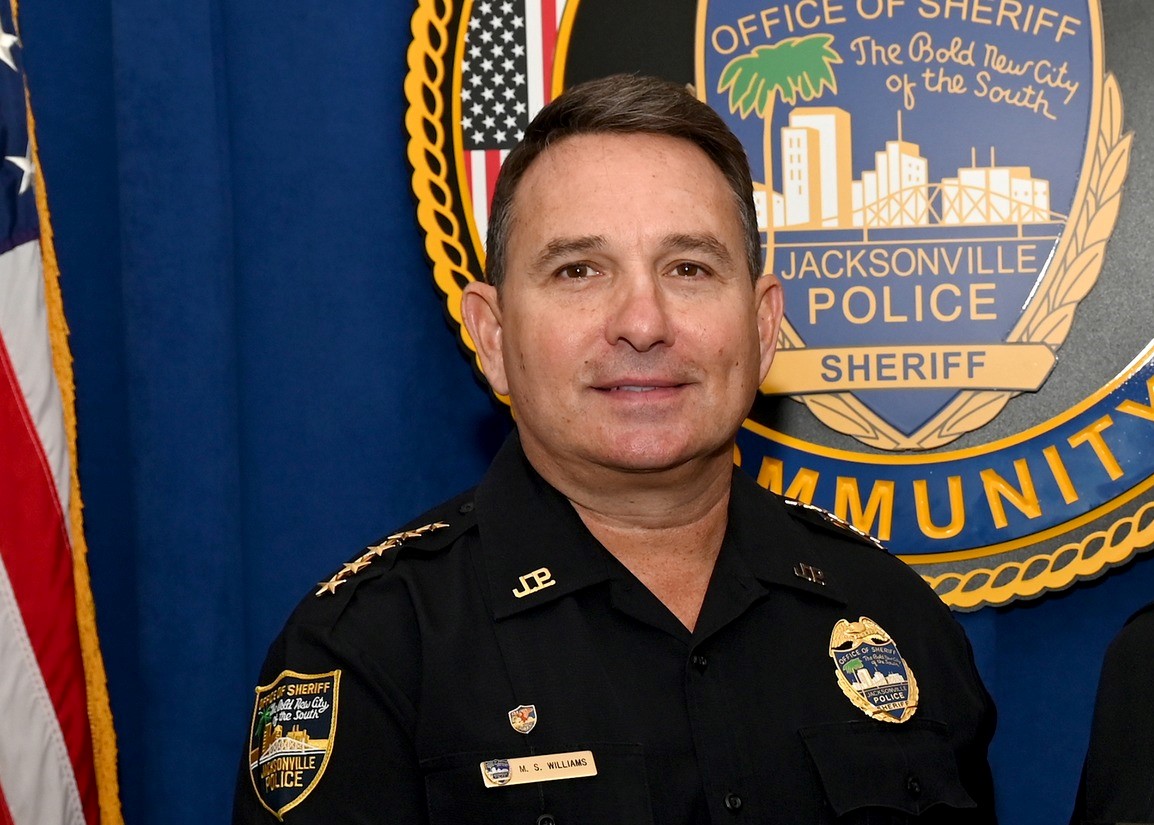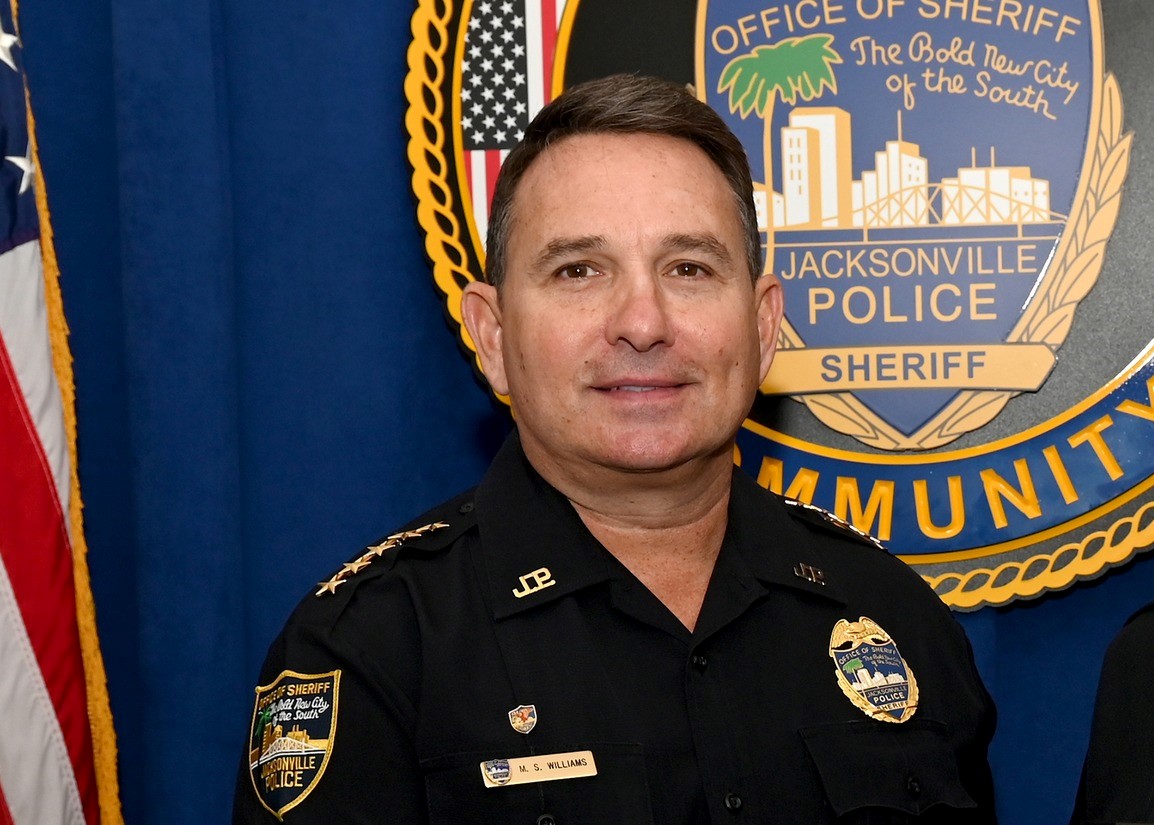Jacksonville Kicks Off 2019’s Sheriff Elections
Daniel Nichanian | March 14, 2019


This article originally appeared on The Appeal, which hosted The Political Report project.
This article is part of the Political Report’s coverage of 2019 local elections.
Duval County votes for its sheriff on March 19, the first of more than 300 sheriff elections in 2019. Mike Williams, a Republican first elected in 2015, is running for re-election. He faces Democrat Tony Cummings, a former officer in the sheriff’s department.
Today, the Political Report reviews some of the election’s stakes on policing practices, immigration, and transparency.
Policing practices: The Jacksonville Sheriff’s Office (JSO) covers all of Duval County, but it also serves as the police department for the city of Jacksonville. In recent years, investigations have drawn attention to problems in its policing practices. In 2017, ProPublica and Florida Times-Union jointly published “Walking While Black,” an investigation that found that from 2012 to 2016 the JSO had issued a disproportionate share of jaywalking tickets and other pedestrian citations to Black residents. Ben Frazier, president of the community group Northside Coalition of Jacksonville, told me that he was disappointed in how elected officials reacted to these findings. “Nobody picked up the banner” and pressed for change, he said in an interview in January. “We cannot allow the voice of the people to be ignored and for people to be mistreated.” In 2017, Frazier sent a letter to the federal Department of Justice asking the agency to investigate police use of force and misconduct, alluding in part to a string of fatal shootings by JSO officers.
Williams’s campaign did not respond to a request for comment regarding what changes he had implemented or would implement in response to allegations of police misconduct.
Andrew Pantazi of the Florida Times-Union reported this month that the number of people shot by the police had dropped significantly over the past three years, and that it fell last year to its lowest level in at least 13 years. Pantazi also reported that the JSO had reviewed shootings involving 12 officers since Williams took office, and that “none of the 12 officers were required to undergo additional training or an internal-affairs review.” The JSO investigates shootings internally.
Cummings has called for investigations to involve civilian oversight. In his January interview with the Political Report, he advocated for the creation of civilian review boards, which would require a change in state law, to counter the criminal justice system’s “inability to police itself.” Regretting that “the public is left in the dark because they have many many questions that go unanswered,” he called for them to have a “seat at the table.” He has talked of civilian review boards elsewhere on the campaign trail. Cummings also said he would train officers to arrest people less frequently, and to make greater use of civil citations. “You can keep the taxpayers safe without having a heavy-handed enforcement that does nothing at this point but widen the gap of trust between the police and the citizens that they’re trying to actually protect and serve,” he said. “We can’t enforce our way out of this problem, out of mass incarceration.”
Immigration: Duval County is one of 76 jurisdictions nationwide that are part of ICE’s 287(g) program, which authorizes some sheriff’s deputies to research the immigration status of people held in county jails and detain them over suspicions that they are undocumented. Williams renewed Duval’s 287(g) contract in 2016. During the 2018 elections, populous counties of Maryland and North Carolina saw local officials’ participation in 287(g) become a major issue that contributed to the victories of challengers who pledged to terminate these agreements. But this script will not repeat in Jacksonville since Cummings has made no such pledge. He told the Political Report in January that he would remain in 287(g) and assist ICE in detentions, unless he determined that ICE was using racial profiling to target people in the county.
Five other counties with 287(g) agreements hold local elections this year.
Transparency: Ben Conarck reported in the Florida Times-Union this week on changes Williams made to the department policies regarding transparency. Williams has put the office “in line and even ahead of the pack compared to other major metropolitan Florida police departments, at least in some public-facing areas,” Conarck wrote; he added that Williams has also adopted a more contentious relationship with the local press. Cummings told me in January that he would create a public accountability office to ensure that he and his deputies are “adhering” to stated policies.
This is one of Florida’s first elections under Amendment 4, which enfranchised most Floridians who have completed a felony sentence. Newly enfranchised Jacksonville residents began registering in January, as the Times-Union reported at the time.
Update: Sheriff Mike Williams prevailed by a wide margin in his bid for a second term on March 19.


